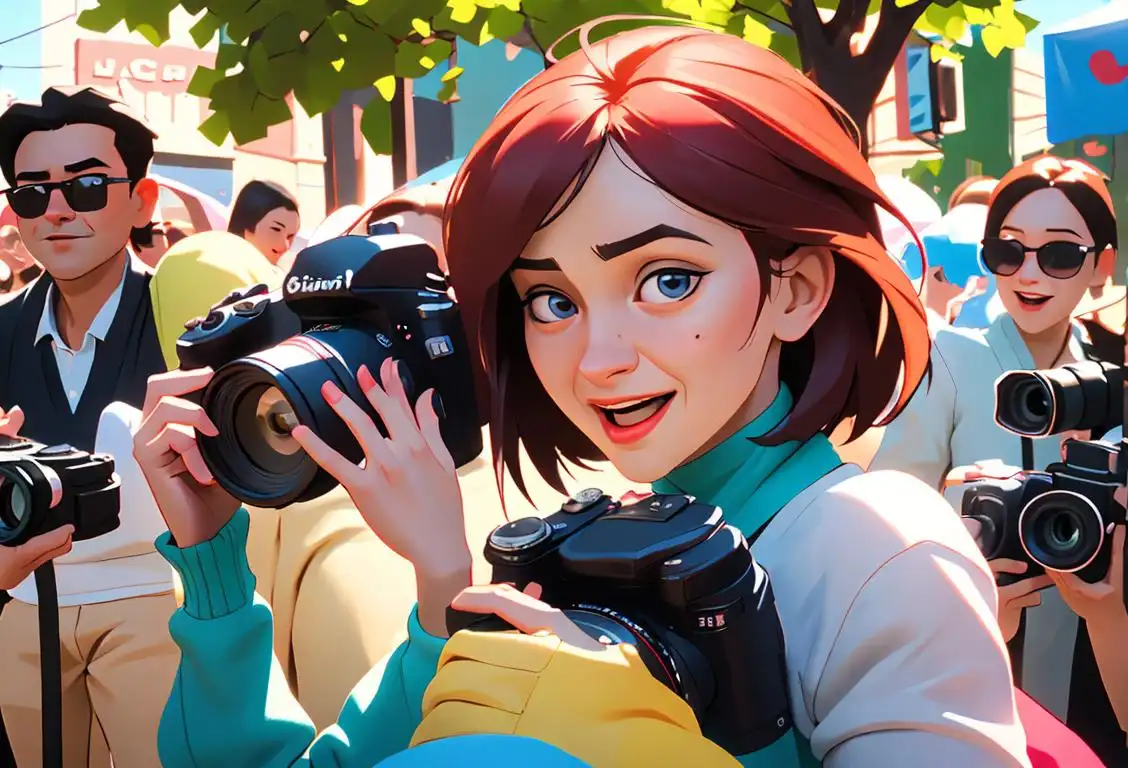National Photography Day

Snap, click, flash! Ever wondered why your friends seem to suddenly become professional photographers each time August 19 sways around the corner, turning your social media feeds into black and white art collections? They aren't all honing their inner Ansel Adams, they're celebrating National Photography Day!
When is Photography Day?
It's national photography day on the 19th August.
A Snapshot of History
Ready to embrace your inner selfie-artist or landscape-chronicler? Let’s journey through the picture-perfect history of National Photography Day. This celebration of shutter speed and film harks back to the very roots of photography itself, remember when they had to stand still for hours to get a photo without it becoming blurry? Can you imagine trying to snap a duck face selfie back then?
Framing the Celebration
National Photography Day got the spotlight it deserved on social media in just 2016. On 19th of August, mentioned a whopping 3013 times, it broke its previous internet records! Some say, it broke the internet, like a certain champagne-popping celebrity. The day isn't just about capturing the world through a lens but seeing it through different perspectives. So, you don’t need to be an accomplished photographer to join in the fun. Grab your smartphone, Polaroid, or even a disposable camera from a thrift shop to 'snap' to the rhythm of this day!
Through the Aperture
The beauty of National Photography Day is how it encompasses both the simplicity of capturing moments, along with the complexity of producing stunning and meaningful images. It doesn’t matter whether your pictures are DSLR quality or humming with vintage Polaroid vibes, photography, after all, is about freezing moments and telling stories. And as we all know, every image has a story to tell. Unless it's a photo of your thumb, although I've seen some pretty interesting thumbs in my time on the internet!
History behind the term 'Photography'
1839
Invention of Photography
In 1839, the term 'photography' was first coined by Sir John Herschel. It is derived from the Greek words 'phos' meaning light and 'graphē' meaning drawing or writing. Herschel, a British astronomer, mathematician, and chemist, used the term to describe the process of capturing images using light-sensitive materials.
1827
First Photograph
In 1827, Joseph Nicéphore Niépce succeeded in capturing the world's first photographic image. He called his invention 'heliography,' which translates to 'sun drawing.' Niépce achieved this feat using an early camera obscura and a pewter plate coated with bitumen, a light-sensitive material. Through a long exposure, the image of a courtyard was etched onto the plate, marking the birth of photography.
1837
Daguerreotype Process
In 1837, Louis Daguerre invented the daguerreotype process, a photographic technique that produced highly detailed and sharp images. This revolutionary process involved exposing a silver-coated copper plate to iodine vapor, which made it light-sensitive. The plate was then exposed in a camera and developed using mercury vapor. Daguerre's invention paved the way for the popularity of photography and its eventual commercialization.
1888
Introduction of the Kodak Camera
In 1888, George Eastman introduced the Kodak camera, a compact and easy-to-use camera that brought photography to the masses. The Kodak camera came pre-loaded with a 100-exposure roll of film and was designed for amateur photographers. After capturing the photos, the entire camera was sent back to the Kodak factory for film processing and reloading. This simplified the process and made photography more accessible to the general public.
1907
Color Photography
In 1907, the Lumière brothers, Auguste and Louis, invented the Autochrome process, marking a significant breakthrough in color photography. The Autochrome process utilized a mosaic of potato starch grains dyed in red, green, and blue. These grains acted as color filters when exposed to light, allowing for the capture of color photographs. This development opened up new possibilities for artistic expression and enhanced the visual storytelling aspect of photography.
1947
Instant Photography
In 1947, Edwin Land, the founder of Polaroid Corporation, introduced the first instant camera, the Polaroid Land Camera. This groundbreaking invention allowed photographers to capture a photo and have it develop before their eyes within minutes. The Polaroid Land Camera utilized a self-developing film that contained the necessary chemicals to produce an instant print. This innovation revolutionized the way people experienced photography, making it immediate and tangible.
Did you know?
Did you know that the first photograph was taken in the summer of 1827 by Nicephore Niepce using a material that hardened after 8 long hours of exposure? Longest selfie wait ever.Tagged
awareness food fun loved ones rememberance sportsFirst identified
15th June 2015Most mentioned on
19th August 2016Total mentions
3013Other days
Caregivers Day
Believe Day
Photography Day
Family Day
Action Day
One Day
Happiness Day
Trivia Day
Opposite Day
Cancer Awareness Day








